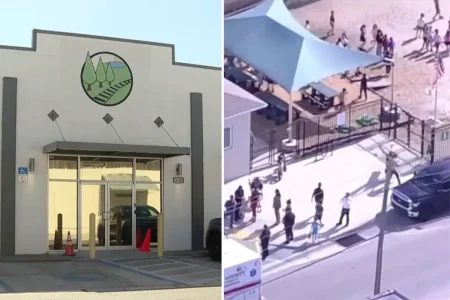CDC Director’s Concerning Claims About Previous Administration
In a notable development within the Centers for Disease Control and Prevention, Dr. Jeanne Marrazzo, who was temporarily placed on administrative leave, has raised serious allegations against the Trump administration. According to her statements, the previous administration allegedly disregarded court orders and created significant obstacles to vaccine research progress. These claims highlight tensions between scientific institutions and political leadership during a critical period in public health governance.
The allegations come at a time when public trust in health institutions remains fragile, following years of pandemic response scrutiny. Dr. Marrazzo’s concerns specifically point to what she characterizes as deliberate interference with scientific processes that were designed to advance vaccine development and implementation. If substantiated, these claims would represent a troubling precedent of political considerations potentially taking precedence over public health expertise and legal requirements.
While the specific court orders referenced remain unclear from the initial statement, the implications suggest a pattern of administrative decisions that may have delayed or complicated crucial vaccine research during a period when rapid scientific advancement was essential. The tension between political administrations and scientific agencies is not unprecedented, but allegations of defying judicial directives add a particularly concerning dimension to this reported conflict.
Dr. Marrazzo’s administrative leave status adds complexity to these allegations, raising questions about timing and institutional dynamics within the CDC. Public health leadership requires balancing scientific integrity with political realities, and these allegations highlight the challenges in maintaining that balance during times of crisis or transition between administrations with different health policy priorities.
Health institutions like the CDC operate at the intersection of science and policy, where disagreements about priorities and approaches are inevitable. However, the specific allegation of defying court orders suggests potential overstepping of constitutional boundaries rather than mere policy disagreements. The scientific community has long emphasized the importance of maintaining independence from political pressure to ensure evidence-based decision-making in public health matters.
Moving forward, these allegations may prompt broader discussions about the appropriate relationship between political leadership and scientific agencies, particularly during public health emergencies. The tension between administrative authority and scientific independence remains a delicate balance in democratic governance, with significant implications for public trust in institutions tasked with protecting community health. Dr. Marrazzo’s claims, whether ultimately substantiated or not, highlight the ongoing challenges in navigating these complex institutional relationships.










